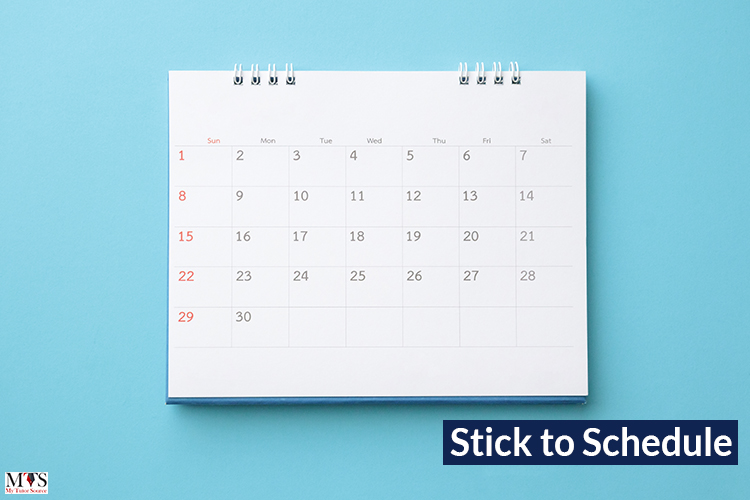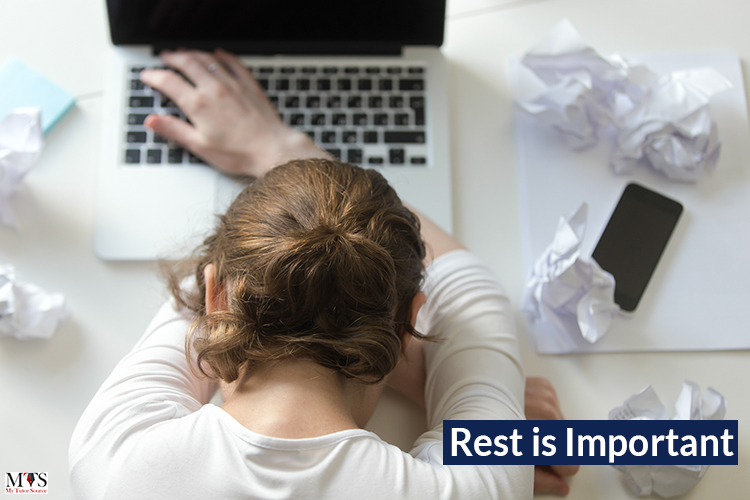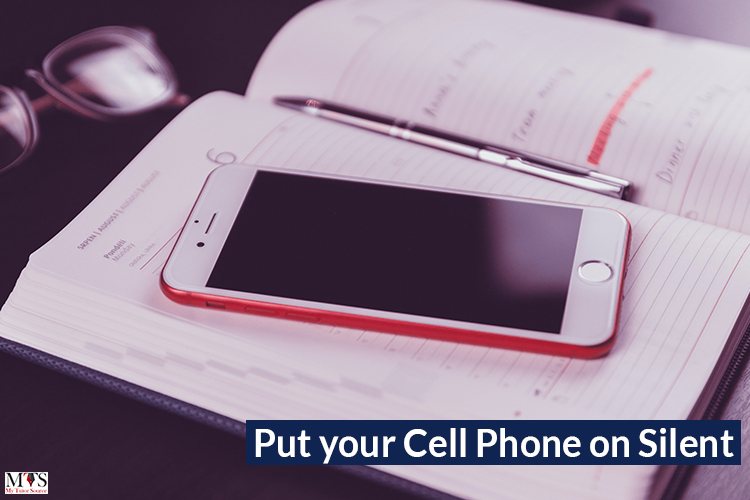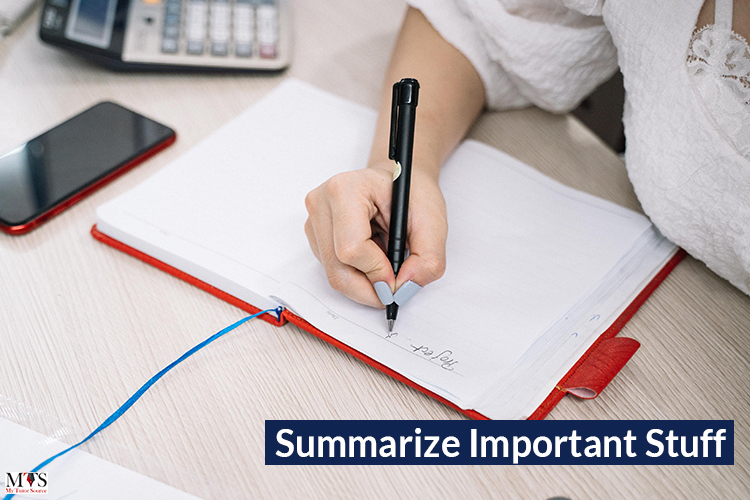

Your studying habits aren’t cutting it for you? No matter what you do, you just can’t seem to get into the habit of studying effectively? It doesn’t mean there’s anything wrong with you, and it just means you need to learn effective study skills.
What if I tell you there are effective tips and strategies you can adopt to help you learn better? We have the perfect guide to help you navigate the art of studying smart. Experiment with our evidence-based strategies and get to know what works best for you, then implement them in your daily life to see visible results.
To master anything, we need to master the art to calm our nerves. You can’t do anything well if you are tense or nervous. The best way to relax is to breathe. Good long deep breaths, inhale for 4 seconds, hold your breath for 4 seconds, exhale for four seconds, and then hold your breath for 4 seconds (You can count slowly to 4 in your head) . Then do it all over again until you start feeling calmer.

Once your nerves are calm, you’ll feel your head getting clearer, your muscles relaxed, and you will be more productive.
If you study in a tense state, you’ll be studying for longer and still won’t learn well enough. So you must start studying in a state of calm for better results.
Stress is your number one enemy that hinders your productivity; it makes learning and retaining information harder. To eliminate stress from your life, you can do so by adopting the below-given techniques:
Make a schedule and stick to it. If you manage your time well, you’ll be more efficient with your learning. Successful people know the importance of time management and know that it’s all about working smart and not harder.
Moreover, making a schedule can help you move through your syllabus with persistence, and we know persistence is a trait of successful people.
So, take out your calendar, select your study slots, plan your study sessions, and then stick to it for maximum results.

Did it ever happen with you that your cell phone got all heated up because you were using it non-stop for hours straight?
Our bodies are machinery too. If we don’t give them rest, they give up too. Resting is so important for your brain and body to function properly. So take rest when you get home, and start studying after your mind has been refreshed, as it will make you more productive and efficient.

If you get tired between your study sessions, take a break or a nap. Power naps are effective to freshen you up. If you are tired, don’t force yourself to keep going. It will just exhaust you more and waste your time and energy.
Successful people know how to invest their time and energy efficiently in a productive manner.
Like stress, exhaustion is your enemy too. Your body requires rest and sleep; it helps boost memory function.
This brings us back to the importance of creating a schedule, as it reduces the temptation to stay up late, cramming for the test the next morning. Instead, when you are up-to-date with your study schedule, you’ll be looking forward to seven-plus hours of sleep before your exam.
Do a few stretches, some light exercises, or yoga when you wake up. It will boost your energies and help prepare your body and brain for work.
Only you can determine your own studying pace, as there is no right or wrong here. Ask yourself, do you absorb the content quickly, or do you require some time to let it absorb in? Once you know, give yourself the time you need. And never try to match anyone else’s pace.

We all are hooked on our phones these days, which is okay if it’s in your free time. But if you are studying, it can be quite distracting.
Your phone buzzes, and before you know you are talking to a friend or scrolling down your socials, which usually disturbs your entire study schedule.
So, when you start studying, put your phone on silent. It will be a game-changer. I know it’s hard too, but there’s nothing you can’t achieve once you make up your mind.

They say the more cluttered the space around you, the more cluttered your thoughts are. Cleaning and organizing the space can work wonders to help you feel more productive. Similarly, organizing your workspace can help you be more focused and productive. Less clutter also means fewer distractions.
Selecting a good place to study is important. Usually, we recommend that you don’t study in your bedroom. Studying where you sleep is not a good idea, as your brain has designated that space to study.

Try always to sit up straight. A desk and chair will keep you on your toes, more agile. You can also go to a library if you don’t have a quiet place to study at home.
Picking the right place can streamline, as well as set the tone of your studying session. Having a designated study place is always a good idea.
Keep some snacks with you. Studying burns energy, so you are bound to feel hungry while studying. If you have to get up to get or make yourself a snack, it can break the whole flow. Moreover, you’ll be wasting time.

I don’t mean potato crisps and other junk food when I say snacks. They slow your brain. Choose wisely, snack healthy!!
Here’s a list of a few brain foods you can snack on while studying:
Background sounds can help fade the noises out. Soft background sounds are a great way to cancel out the surrounding noises, distracting you from concentrating.
Some people prefer sounds of nature, like ocean, rain, or thunderstorm. White noise is also a fantastic noise canceller. Personally, it does wonders for me.
We all are hooked on streaming and binge-watching Netflix. But it can mess up your concentration. Log out of your Netflix accounts when you sit down to study. Watch it only in your free time or over the weekends.

Merely going through your notes and books is not an effective way to learn. It doesn’t help you process and retain information properly. So leverage proven studying strategies to optimize your learning process.
Below are a few effective study methods. You can choose the one that best suits your needs.
To help the processing of the material, follow this method:
Preview: Skim through the material and note the headings and bolded/highlighted material.
Question: Come up with questions related to the previewed material.
Read: Read thoroughly. Try to answer the questions.
Reflect: Take a few moments to reflect on the material.
Recite: Read the material out loud.
Review: Go over the material one more time.
To read more efficiently, follow this method:
Title: Read the title of the content.
Headings: Go over the headings.
Introduction: Skim through the introduction.
Every first sentence in a section: Pay attention to the beginning of each section.
Visuals and vocabulary: Carefully view the bolded items, diagrams, and pictures.
End questions: Make sure you have no questions left unanswered by the time you finish reading.
Summary: Conduct an overview of the text briefly.
If you want to start thinking critically about your study materials, use the SQ3R method.
Survey: Take a bird’s eye view of your study contents. Skim through the text focusing on headings, bold items, and diagrams/flow charts.
Question: Always ask questions about your subject material.
Read: Then read the content carefully, in a way to answer your initial questions.
Recite: Read the answers out loud, and then take down notes.
Review: Revision is important. Go through the study material and compare notes for effective learning.
Making your own flashcards is a great way to quiz yourself. Prepare note cards with a keyword on one side and an important fact or a definition on the other side.
It has twice as many benefits; writing everything down will help you memorize the information, whereas quizzing yourself will reinforce what you have learned.

To teach something, you need first to understand it yourself. Now think if you had to teach a topic to someone, how would you do it? To wrestle with a concept like this will help you better understand that topic.
You can even teach it to a friend, a family member, or even the imaginary audience in your head. Reading it out loud to someone will make the information stick better.
Summarizing key points in your own words is helpful. It’s like narrating a story to yourself, and it will help you retain the information better.

Don’t over-exert yourself, as it will be counterproductive to what you are trying to achieve. We all know all work, and no play makes Jack a dull boy. Studies are important, but they shouldn’t be the only important thing in your life. Have a social life, get some exercise, and participate in non-curricular activities.
These things are important for a healthy and functional life; you need to stimulate your senses to strengthen your cognitive skills. If you don’t, it will negatively impact your life and affect your performance in your studies.
Make a cheat sheet by condensing all the important things onto a single page. Writing them down will help you revise those concepts, as well as going through them later would be like a one-stop-shop. It is a time-savvy and effective hack to your revising practice.
Plus it is portable so that you can carry it with you everywhere. Making revision before a big test easier.
Associating a difficult task with something fun can give your brain a helping hand. You can create a fun song, develop a mnemonic device, draw pictures, make flowcharts, or create a brain map.
These are proven hacks to memorizing information better. For example, my instructor gave us the assignment to develop a song, using tones of nursery rhymes to help us memorize the functions of different hormones. And our group made a song using the tone of the baby shark, and it still helps me recall the functions easily. Similarly, we all have used this mnemonic “VIBGYOR” as kids to remember the color of the rainbow.
Sometimes your brain could use an extra hand to help you hold onto the information you’re studying. Creating imaginary pictures, crafting word puzzles, or doing other mental exercises can help make your material easier to remember.
When memorizing the digits of someone’s phone number, we divide the 10-digit number into three small groups. It helps us remember the number easily. So use this strategy when you have to learn something lengthy. Break it down into smaller chunks. It will be easier to absorb.
While reading the content, try and look for important information. It will help you be more engaged with your reading material. It will also keep you from getting distracted as you read.

When you find something that you think is important, highlight it or underline it. It will help you in the revision process as well.
There are a few habits or lifestyle changes that you can adopt that will impact your learning immensely:
Exercise is a must. Make it a part of your lifestyle. Take 20-30 minutes out of your day to work out daily. If you can’t do it daily, you can work 45-60 minutes 3 to 4 times a week.
We all know that sound health, sound mind! So keep your brain active and agile by exercising your body.
Humans are social animals. We need and thrive in groups. Studying together is also very effective. You can exchange ideas, divide the work, and be more productive.
An effective study group technique is to divide the content (reading material) among the group members, and when everyone is done, take turns telling all the members about the content you read. It reduces the workload. And when you hear it narrated from someone else, it’s easier to remember it.
A cognitive experiment on problem-solving had this example of how a chicken stands in front of a fence. This fence is just 5 meters wide. To go to the other side of the fence, it can use the non-fenced spaces on the sides. But the chicken keeps trying to get through the fence, as it doesn’t know any other way to get places. It hits the fence every time.
If it had just taken a moment to reflect, he would have known that it needed to unlearn the learned behavior to tread ahead. It would have seen that the solution to the problem would have been to go sideways. But it’s a chicken, and it can’t. However, we can.
When you find yourself stuck anywhere, just take a break and do something else. Get some fresh air, meditate, play a game on your phone, anything. Return to the problem with a fresh mind, and you’ll see another way.
Taking notes is an art. Effective note-taking can take your study game up a notch. Get pens of different colors, write down important stuff only. Use different colors to highlight different concepts, like definitions, examples, and headings. It will help you with revision when you get back home.
To retain the information, you can:
Scan the text, look for key vocabulary. Usually, the important things are highlighted in the text or are written in bold. Look them up in the dictionary. Remember these words. They will help you do better in exams.
Some of you might not have heard this phrase before. I want you to know that you don’t have to do it literally. It means doing the hardest task before and then moving down to easier stuff. Gradually decrease the difficulty of the tasks. It will reduce anxiety and procrastination, which will help you be more productive.
If you want to lessen your study burden on the day of an exam, adopt the habit of reviewing and revising your class lecture or notes when you get home every single day! When you understand a concept, then go through it twice. Within 24 hours, it gets stored in your long-term memory.
Hence, you will have to freshen up those concepts on exam day. It will save you the trouble of staying up all night when you have a big exam the next morning.
When you re-write the class notes, it helps you understand and memorize the content better. So, make this a daily habit.
Divide your syllabus into parts, create an outline of what you need to get done. Then stick to it. Being more organized saves time and helps you be more productive.
You don’t have to spend hours studying. Make sure you just take out one or a couple of hours in your day. Limit all the distractions, and focus on what needs to be done. Trust me that is enough.
Don’t cram. Try to understand. Shift your intentions. Learn to understand and not just to pass an exam. You might ace one test, but in the long run, you’ll just have to spend more time and energy learning it all over again the next time.
When you have an important test coming up, don’t leave the preparation to the last minute. Even when you already know the contents. Take your time, start preparing in advance. The stress of doing anything at the last moment makes everything chaotic, and the results are never good.
Prepare for an exam in a way that you are going to be tested. The best way to accomplish this is by practicing sample problems and essays from your textbook.
You can even google practice exams related to your syllabus and solve them in advance. It will prepare you to structure your answers in a better way.
You can use several techniques to help sharpen your cognitive skills. A few of these techniques are listed below:
The hacks given below have personally worked for me throughout my school life. Please take a look at them. You can adopt the ones that suit your specific needs.
Meditation is the art of being mindful. Take out 15 minutes of your day and invest them in your wellbeing. Trust me when I say it will change the course of your life. You’ll be more present, active, and agile. Meditating to be one with your mind will help you be more efficient with your studies and everything else in your life.
You can find a guided meditation video on youtube. Play it, close your eyes, and just meditate. Make it a habit, and you’ll start seeing the difference in your life soon.
Exercise is important. A healthy body fosters a healthy mind; there’s no doubt there. You can even do it for 15 minutes a day, and you’ll see the difference.
Mellow, soothing, calming tones can help you concentrate. Research shows how music can increase concentration, attention span, and productivity.
Study in groups, teach others, share information. They say you get what you put out there. When you exude knowledge, you get it back 10X.
Make a clutter-free space to study, put your phone in airplane mode, and avoid distractions to focus your energies better.
Your brain and body need sleep to function better. Improve your sleep hygiene. Make a routine. Sleep and wake up every day at the same time. Put your phone aside when it’s time to sleep. Read a book or do something you find soothing before going to bed. Take melatonin if you wake up every few hours. It will help improve your sleep.
Behavioral studies show how positive reinforcement can instill and promote the desired behavior.
Reward yourself. Think of a bigger goal, divide it into smaller step-by-step goals.
When you accomplish the smaller task, reward yourself with some time out with friends, a bar of chocolate or anything you think will reinforce you to study.
Caffeine can help you focus better. But don’t overdo it. A cup or two of coffee during the day can be really helpful. More quantities of coffee can be counterproductive, as it would increase cortisol (stress hormone) levels.
Smartphones, the internet, and different apps have changed how learning used to occur. We can use technology to help us learn better. Here’s a list of fun study apps we curated for you. Browse your app store to find the one that suits you best!
Study smart, not hard. I’ve seen students around me who spent all day studying. No one can say they didn’t work hard. But they wouldn’t achieve the results they were aiming for. Being more strategic and tactical is what will show results.
We live in a fast-paced world; there’s a lot of information and many aids. We need to know how to plan, organize, and strategize our studies better to attain maximum results.
Tutoring is also an amazing aid. Getting tutors’ help can streamline your study routine.
Get in touch with our expert psychology tutors here at MTS to further enhance your learning experience. They can teach you online at your convenience, from the comfort of your home.